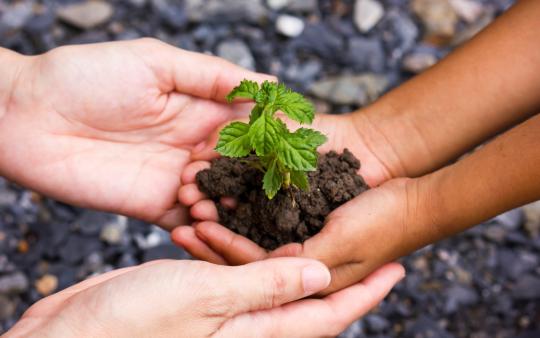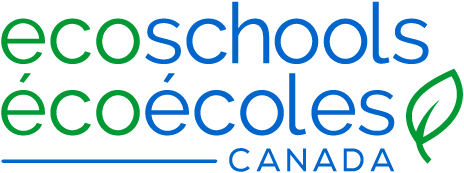On August 20, 2018, a teenager sat alone outside the Swedish parliament with a hand-painted banner that read skolstrejk för klimatet (School Strike for Climate). Little did anyone foresee the impact a young and determined individual would have on sparking a global movement for climate action. That student became an activist, and that activist became the voice of a generation.
Whether you are consciously trying to raise the next Greta Thunberg or not, the time has never been more critical to invest in and nurture environmental leadership in children. Sustainability and climate change are the global challenges of the 21st century, and as parents, we want to prepare our children for these challenges. It is our responsibility to nurture and support environmental leadership in our children, schools, and communities.
To influence climate action and build a sustainable future, we need to act both on an individual and collective level. Here's how you can get involved and make a difference.
Every school an EcoSchool
It isn't called a climate crisis for nothing, but that doesn't mean we can't tackle this issue together with hope and optimism. We can start by educating our youth and encouraging our schools to lead the way in creating sustainable communities and environmental leaders. Fortunately, there are incredible resources available to support these initiatives. If you think schools can and should do more, then you're in good company. The EcoSchools movement was created to address the need for environmental learning and climate action in schools around the world. Coordinated globally by the Foundation for Environmental Education (FEE), and endorsed by UNESCO, EcoSchools is the most extensive international effort to promote sustainable programs in schools.
Since 2005, EcoSchools Canada has provided the framework for schools and outdoor centres to integrate sustainability education into their core and extracurricular programming. With a comprehensive certification program, they inspire and support a network of schools to support environmental literacy in the curriculum. Furthermore, EcoSchools is on a mission to nurture student leaders, reduce the environmental impact of schools, and build sustainable school communities. This rapidly-growing network reaches about a million students annually!
What is an EcoSchool?
"The EcoSchools program has given our students the opportunity to really understand both their own impact on the environment, and how little changes can make such a big difference. It has empowered them to speak up, learn, and make a change." - Tara Michel, Teacher, Connaught Public School, DSBN
EcoSchools is a bilingual voluntary certification program for kindergarten to grade 12 designed to support environmental action and leadership in schools. Schools can apply for certification by demonstrating commitment and achievement towards environmental initiatives. Schools build a plan that matches their sustainability goals, and what is most important to them. The certification program currently recognizes more than 40+ environmental actions that schools can engage in, all connected to the UN Sustainable Development Goals, and support provincial and territorial curricula across Canada. Some of the environmental actions schools undertake on a regular basis include: school waste audits, anti-idling campaigns, building and maintaining school gardens, and “lights-off” energy conservation campaigns. Schools earn points towards a certification level (tiered from Bronze to Platinum) awarded at the end of the year. In this way, an EcoSchool's curriculum linked framework not only assesses, tracks and benchmarks collective impact, but also recognizes and celebrates environmental achievements - a badge many schools wear proudly!
Using the custom-built, community-designed online EcoSchools Certification Application (ECA) platform, schools can track the impact of their actions over the school year. The ECA collects and displays data from schools’ actions in a comprehensive and visual way, making it easy to see what has been accomplished. Being able to see these impacts, such as kilograms of waste diverted from landfill or the number of hours of outdoor learning achieved, helps improve school sustainability practices, informs real-world decision making, and helps develop digital literacy such as data analysis for students. What’s more, the ECA displays the collective impact of EcoSchools across Canada - a reminder that they really are part of a larger community working towards a common good!
Developing leadership and communication skills
Within each school, EcoTeams are formed to help develop an environmental action plan to meet their school's sustainability goals and support EcoSchools programming. Getting involved in these teams offers students an exceptional opportunity to take on leadership roles in organizing EcoSchool activities and events. Students can also engage their peers, parents, educators, and other community members on environmental issues, and suggest ways they can get involved.
Working in a team helps to strengthen communication, interpersonal, organizational and project management skills. Students are encouraged to bring their ideas to the table, applying critical thinking and problem-solving skills to develop practical solutions to complex real-world issues. These are all important skills that will be beneficial for a lifetime!
Supporting community and inclusivity
"What we learned at school we carried through to our other lives. Our houses, our homes, our family." - Asha, grade 6, St Columban Separate School, HPCDSB
Let’s face it: no one can tackle climate change alone. Greta Thunberg’s impact on the global environmental movement stemmed from her ability to inspire and rally people for a common cause. By focusing on climate action and sustainability education, EcoSchools encourages students, teachers, parents and communities to work together. Communities are created when individuals come together to work on collective goals, and on their school's EcoTeam everyone has an important role to play.
In addition to building engagement between school communities, EcoSchools are also committed to diversity and inclusivity. As the intersections between environmentalism and social justice become ever more apparent - such as recognizing that BIPOC groups are disproportionately impacted by climate change - representation has never been more important. EcoSchools integrate inclusivity and sustainability education, bringing both critical awareness and compassion to these issues.
Connecting to a global network

At the heart of the EcoSchools programming is the goal of instilling children with the knowledge, skills and desire to become environmentally responsible citizens. When a school becomes an EcoSchool, it is also linked to a global network of EcoSchools consisting of 19 million students worldwide in 7 countries. By meeting sustainability goals students are encouraged to be engaged, action-oriented community leaders and globally-minded citizens. Children feel confident when they have a voice - and EcoSchools nurture every child's ability to become a leader and agent for change.
How parents can support environmental advocacy
Getting involved in environmental leadership and education has never been easier. In fact, parents and guardians are an integral part of an EcoTeam’s success. If your school is an existing EcoSchool, there are many ways you can get involved:
Join an EcoTeam
Parents and guardians can become directly involved in helping a school’s EcoTeam develop and implement an environmental action plan. You can get hands-on experience by assisting in the school’s green projects, such as maintaining food and pollinator gardens.
Sponsorship/funding
If you enjoy research and writing, then you can help with funding applications and garnering sponsorships from local businesses and organizations. This can help cover the costs of everything from green project supplies to field trips.
Spread the news
Simply sharing EcoTeam news can help increase awareness and interest in environmental initiatives in the school community and beyond.
Encouraging educators to join the EcoSchools movement
Certifying as an EcoSchool is the best way for schools and educators to learn about climate change, take action towards reducing their ecological impact, and create sustainable communities, while developing important lifelong skills and competencies in children. Your school will be provided with the comprehensive framework and support they need. There’s truly never been a better time to get started.
If your school is not yet an EcoSchool, you can encourage your child’s school to register for the program and create a plan (there is no obligation to certify). Use some of the ideas you’ve gleaned from this article on the value of being an EcoSchool as talking points, share their website, and get other members of the school community on board with the idea. All publicly funded schools in Canada can access EcoSchools’ bilingual resources and apply for EcoSchools certification free of charge. Take the initiative to start an EcoTeam at your child’s school!
A sustainable future begins at every EcoSchool
Even the smallest actions can have a positive impact on the world. Every student, every school and every parent can make a difference in influencing positive change. Engaging our youth in environmental action today is the best way to build a more sustainable tomorrow. The success of an EcoSchool depends on the involvement of the whole community. When we nurture environmental leadership in our children, and take collective action to support environmental advocacy, we can transform the world. To learn more about EcoSchools please visit: ecoschools.ca
EcoSchools has also created a great eco-family resource just for you! Sign up for their e-newsletter below to get instant access to the...







